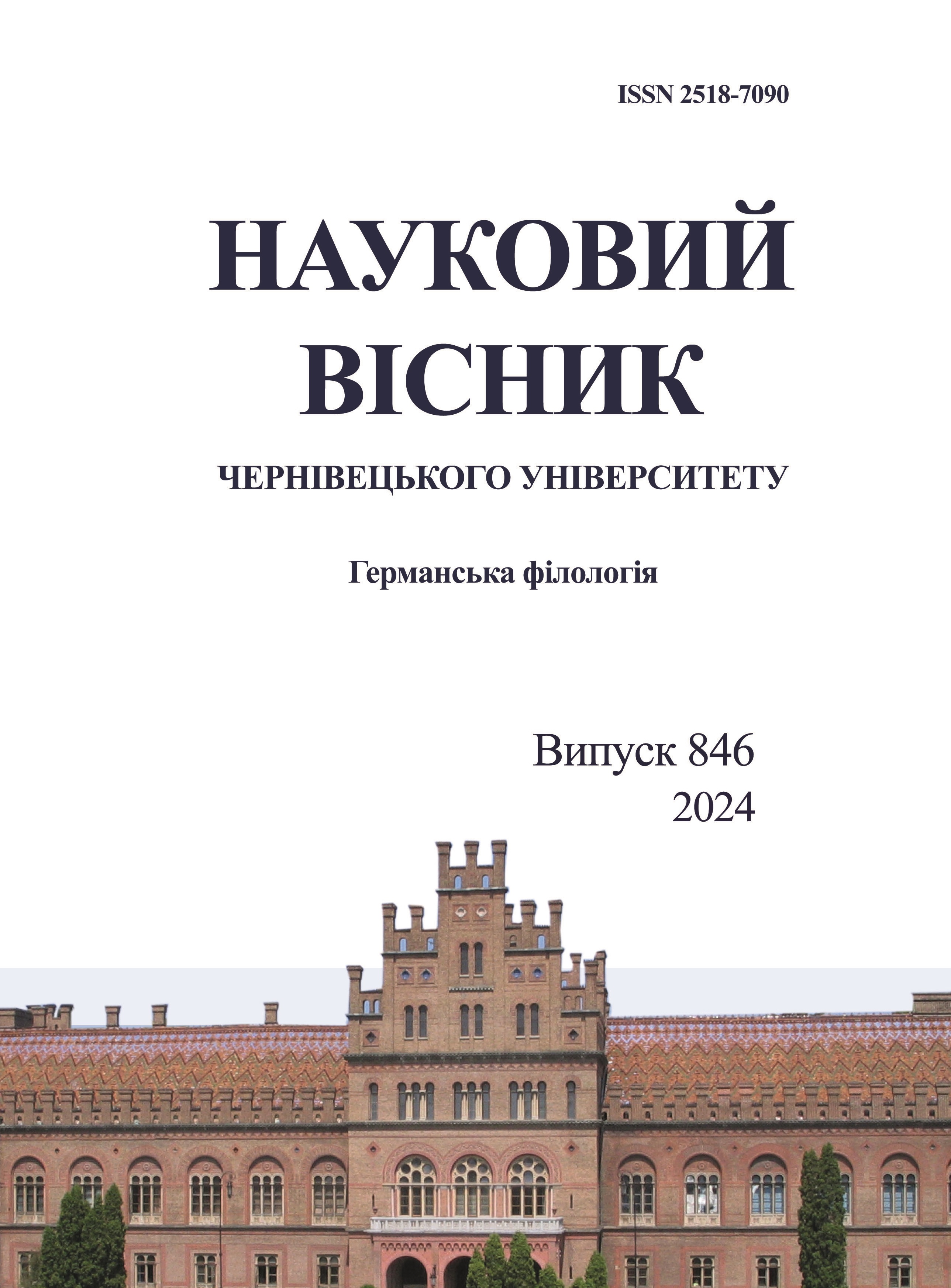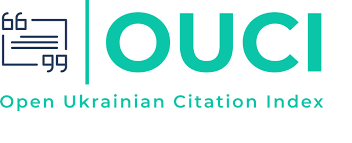АНГЛІЦИЗМИ В НІМЕЦЬКОМОВНОМУ ПУБЛІЦИСТИЧНОМУ ДИСКУРСІ
DOI:
https://doi.org/10.31861/gph2023.846.51-62Ключові слова:
англіцизм, запозичення, частота вживання, публіцистичний дискурс, жанри текстівАнотація
Наше дослідження має на меті доповнити і в деякій низці аспектів змінити наявні уявлення про характер і місце англіцизмів у німецькомовному публіцистичному дискурсі, а також сприяти розробці комплексного питання про роль та особливості запозичень у мові в цілому. Новизна дослідження полягає в залученні нового мовного матеріалу, розширенні хронологічних і тематичних меж англомовної лексики поза своїм мовним середовищем, а також у застосуванні функціонального (англіцизми в журналі „Spiegel“) і семантичного (особливості вживання англіцизмів в різних комунікативних сферах) видів аналізу.
Матеріалом дослідження слугувала вибірка англіцизмів з журналу „Spiegel“ різних років видання (1950–2020 рр.). Досліджувалися по 6 екземплярів з кожного річного випуску журналу із загальною кількістю близько 8 000 сторінок. Проведене дослідження засвідчило, що вживання англіцизмів на сторінках журналу невпинно зростає: від 2,3 запозичення
на сторінку тексту в 1950 році до 4,7 у 2020 р Найбільш відкриті для прийняття англіцизмів комунікативні сфери „спорт” та „реклама і оголошення”, найбільш консервативною залишається рубрика „зовнішня і внутрішня політика”. Серед найчастотніших англіцизмів трапляютсья як відносно “старі” запозичення XVIII – початку XX століття, так і нові, тобто слова, які увійшли в німецьку мову після Другої світової війни.
Детальний семантико-стилістичний аналіз англіцизмів дозволив виокремити такі причини запозичень: відсутність відповідного поняття в мові-рецепторі, "програш" німецького відповідника в конкуренції із запозиченням у мові-рецепторі, забезпечення стилістичного (емфатичного) ефекту, вираження позитивних або негативних конотацій, якими не володіє еквівалентна одиниця в мові-рецепторі, необхідність розмежувати змістовно близькі, але, все ж таки, дещо відмінні поняття, необхідність спеціалізації понять у тій або іншій сфері для певних цілей, тенденція до позначення нерозчленованого на окремі складові об’єкта єдиним словом, а не сполученням слів, сприйняття всім колективом мовців або його частиною іншомовного слова як більш престижного, з кращим звучанням, а також комунікативна актуальність позначуваного поняття.






